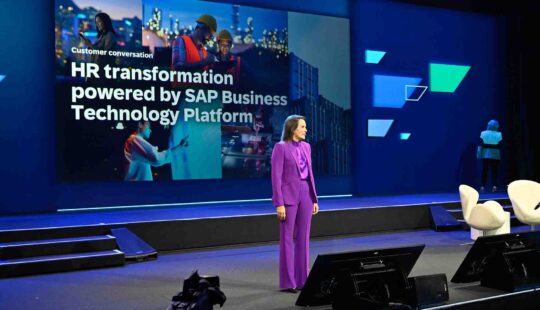What’s News
Over the past few months, many industries, including tech, have been rocked by layoffs, resulting in tens of thousands of jobs lost and affecting a generation that has grown complacent about employment. This complacency has been called “quiet quitting,” a new term for an old concept: doing enough just to get by. While several heavy hitters, including Amazon and Microsoft, announced plans to reduce their workforces, Salesforce said it would cut under-performers.
SAP’s Take
This could herald the end of quiet quitting.
“I wonder if this whole phenomenon of quiet quitting will just simply disappear,” SAP SuccessFactors Chief Marketing & Solutions Officer Aaron Green said. “And if people will just buckle down and say: ‘I need an income to support myself, support my family, support my life,’ and phoning it in is just simply not good enough.”
This likely will play out over the next 12 months, he said: “The tech sector specifically is really the space to watch at the moment, because doing enough to get by is probably not going to be enough. We’re seeing that in the way in which tech companies are tightening their belts and really looking at how they improve both top line and bottom line.”
As tech companies focus on their bottom lines, some of the perks that the industry saw as a given, such as free lunches, could be axed. That might shock some of its workforce.
“With the kind of cutting or the culling of some of those perks and perhaps bringing back a more serious commercial-driven outcome, I think it is going to be a problem for a number of people,” Green said. “Generally, for older generations it’s probably less of an issue. But if we think about the millennials and Gen Z, for whom this has just been the only style of work that they’ve ever known, I think that that is going to be a really big period of adjustment.”
And the shock won’t be limited to disappearing perks: “It’s also areas like the cottage industry of digital nomads that’s cropped up, where you’re working for a large company, but you can work from anywhere.”
The lack of close relationships that come with in-person contact also could make those who work exclusively remotely more vulnerable, Green said.
“Would returning to the office give someone a competitive edge in terms of job retention? Potentially, but I would also hope that employers are looking at the full picture of the individual.”
So, once known for doing just the minimum, can a person change his or her reputation as a quiet quitter?
“Absolutely you can,” Green said. “Will you have to lean in a bit more and harder than you have before to change that perception? Probably. So would jumping and going to another organization. I would always err on the side of doing your best possible work and be judged on that work product, not on the stories surrounding you.”
Contact:
Ilaina Jonas, Senior Director of Global Public Relations, SAP
+1 (646) 923-2834, ilaina.jonas@sap.com



